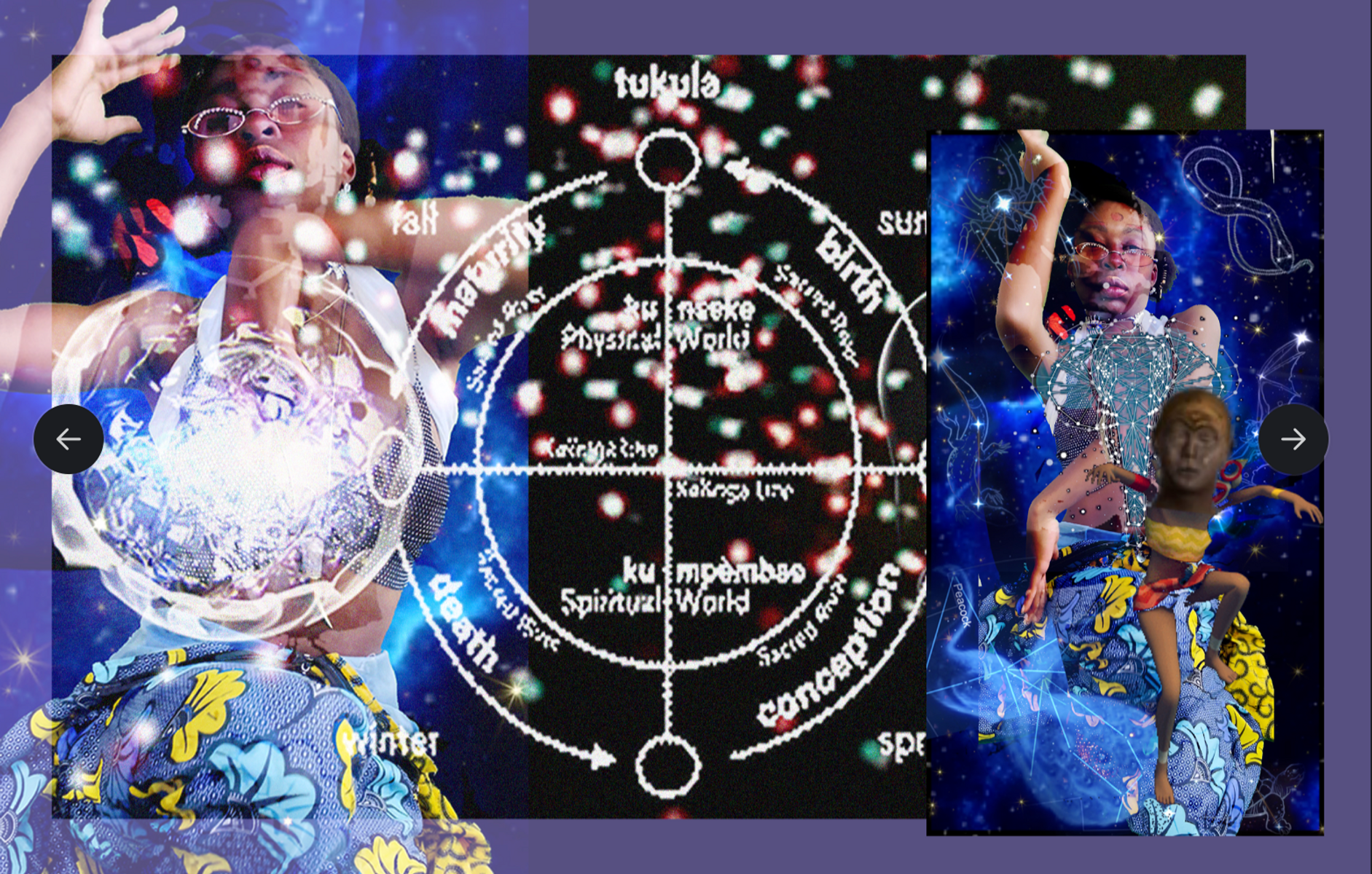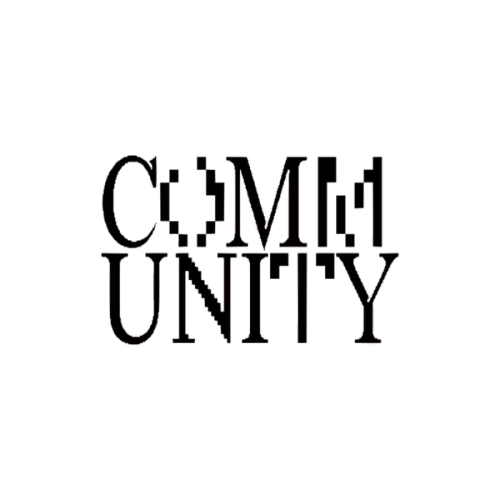Nurses strikes and internet art: Liz Mputu’s Community
For the release of our Dirty Words:Community report, we spoke to community leader and Florida based internet artist Liz Mputu.
Liz uses mediums of sculpture, video and net art to understand race, privilege and wellness. Her work spans Congolese spirituality, communion with nature and insights as a registered nurse and caregiver.
Here she shares her ideas of what community means to her - from the solidarity of the nurses strikes, to creating eco-systems of care. As the project unfolded, her ideas informed our conversations and findings for our Community report.
See our other reports and Liz’s contributions to the community conversation, here:
SS: What are you working on at the moment?
I have been working on a video piece where I'm unpacking all of these ways that I seem to contradict myself when I step out into the world. And trying to find love and harmony within those contradictions. The piece is called Innards Divisions. And I think that we are often penalised for not being able to have a concrete answer as to who we are and how we present ourselves.
Because different communities that we belong to have expectations of us that have to do with our performance of these principles, that exist within the community. But we are imperfect beings, so there's always going to be room for faults, and how do we talk about those errors that occur that are quite natural.
I'm trying to touch on traditional Congolese spirituality, and different rites of passage that used to exist that no longer do, around gender. And not just like a gender expression, but gender equality, and also the taboo when it comes to how people orient themselves in those expressions, whether they are queer or not.
And what being able to gatekeep in a way that is healthy and more a form of like guidance, into deeper wisdom. What that looks like versus gatekeeping for the sake of hoarding, knowledge and information, and exclusivity.
SS: How did you end up collaborating with Protein agency on the Community report?
I was invited by my friend Amir, who I also know from online spaces. Eventually we met in person and we have now been friends for years. And he had been talking about Protein for a while, as an organisation that they had just joined. And they really felt just sort of this refreshing energy around the people that they were working with, and the ideas that they were trying to push, of how people can really collaborate with each other in a more ethical manner.
Yeah, it definitely showed me boundaries about work because after a while, I was like, Oh, I can't do this. This is not sustainable for my mental well being.
SS: That's so nice. I feel like that's kind of how a lot of the projects unfold.. Tell us about the communities you are a part of.
Well when it comes to the nurses strike I became a nurse or graduated from nursing school and then went into nursing during the pandemic.
SS: Wow.
Yeah, it definitely showed me boundaries about work because after a while, I was like, Oh, I can't do this. This is not sustainable for my mental well being.
And I found it so fascinating because prior to going into being a nurse, I was a stripper. I was more involved in things that align with sex work. And for a lot of artists, especially disenfranchised and marginalised creative artists, those in the queer community, that is sort of the financial system that they depend on in order to survive. This is true for trans women who are artists, as well as in general. Although in the current sociopolitical climate that’s changed a lot as our identities have been commodified through the influencer economy.
I started to see the parallels of being a caregiver in that respect, where a lot of times these people are just seeking company, and comfort for their loneliness more than anything else. And then being a nurse and being confronted with the same issues of people just not wanting to be alone in their suffering, whether that manifests in their body or in their minds.

SS: Do you still feel part of a community there?
I would say it was definitely more of an industry in terms of the actual work. But when it came to the aftercare, there was more of a community, where I'm able to depend on like my fellow friends, who are not necessarily working within the same strip club as me, they might work elsewhere, but our body clocks and work schedules synchronise.
We have this space online where we’re reflecting on our nights, how much money we made or how little money we made, or what outfits we were wearing, and being able to connect with them about the less glamorous aspects of the work, and in that respect, it felt more like a community.
I would say while my community includes caregivers, ultimately I feel most in solidarity with people who are seeking purpose, and seeking to ascend and transform themselves to their highest potential. And I feel like I'm a part of a community of people who are just exhausted and wanting more.
Hopefully that doesn't minimise these very specific groups that I’ve found community with, like farmworkers, for example. A huge part of my early career was spending time on urban farms and learning from the healers and leaders there. But I think I've also been so disappointed by the idea of community, because for so long in my work, I was actively seeking it out and then being disappointed when I felt like I didn't quite belong or fit in.
And then I would find that same disappointment, whether it was the queer community. I'm not queer enough, if it's the Black community, I'm not Black enough and always been kind of pushed to the outskirts of it, and feeling that wound of isolation again. Until I finally realised that I belong to myself more than anything. And what that looks like in terms of the communities that I invest in, or divest in, is going to continue to change. And there's a beauty in that because I'm really just, you know, connecting with people. Who are just as lost as I am.
SS: How can we collectively actively support and elevate communities?
Well, as of late, I've been working a lot with nonverbal, autistic and differently abled children. And I think the thing that I'm learning the most is being able to truly listen to each other.
Beyond what can be articulated with our words, and to really pick up on what's happening in our environment in the context of what people are going through, and giving them the space to express themselves. However they need to, and whatever works for them. And then providing them with the tools to empower themselves. I think that I have a tendency to have a bit of a saviour complex myself, by wanting to battle everyone else's saviour complexes.
And I think that it can be really detrimental to think that we know what's good for somebody else. Versus just being there to help them to tell their own stories and to navigate their journeys and their own narratives. And paying people and valuing them for what they really deserve.
SS: How can communities work with brands? And what can people who may have good intentions do to earn the trust of people in those communities?
I think that at this point, we’re having these conversations, and that feels to me like the currency that we’re working with. We have these seedlings, and we’re trying to figure out what it will grow into. So for me, it goes back into relationship building. There are many indigenous practices where prior to even striking business deals, you are requested to come to that person’s home or village, and there’s a meal that’s had and a communion that exists. That represents that whilst this is about an exchange that has to do with goods, or compensation, prior to that we have to see if we even connect or align in our ethics or our morals. And I think that we're in this phase where people are able to utilise language that resembles one of solidarity and collaboration, but it lacks sincerity and integrity.
I think it's a question of how do we ensure that these words that we're speaking are actually supported by our actions? And what does that follow through look like? To ensure that what we said was going to take place has actually taken place.
And so I've been thinking a lot about when it comes to tracking progress, I think us as independent creators or individuals, we don't have a system in place. Because again, we're used to just working through relationships. And sometimes it's up and sometimes it's down but when it comes to sustaining things, we can borrow tools from larger institutions to utilise. Like surveys, or the reports that Protein is doing are essential. Where we're kind of just observing and analysing the landscape and trying to extract - not necessarily resources - but just data. And what we do with that data and who has access to that information.
And then thinking about the conversations, who is invited to those conversations, what is the value of their input beyond the report. And so doing things like this interview, where there's like a follow up. And then you and I get to connect and talk about other things outside of the report that matter to us. And we get to again, be humanised and know that even if you know nothing comes beyond this moment right here, the connection that we've shared has been valuable to me. And it's something that I can take on because now I'm able to recognise what a real human interaction looks like with sincerity again.
So I think when you're able to connect with people, in a meaningful way that goes beyond what they're useful for. And just help one another to remember that we are alive. And to feel that we are breathing. When we're able to bring that into the spaces - that will fuel us beyond anything, I believe.
See our other Dirty Words reports and Liz’s contributions to the Community conversation, here:
